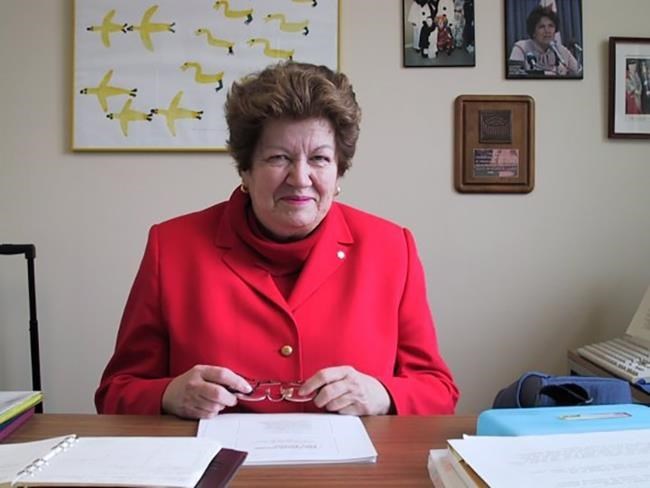OTTAWA — Mournful tributes are pouring in after the death of Monique Bégin, a former cabinet minister and academic who died Friday at the age of 87.
In a statement Saturday, Prime Minister Justin Trudeau called Bégin a "trailblazer for Canadian women." Her election to Parliament in 1972 made her one of the first of three women from Quebec to serve in the House of Commons, he said.
Bégin was "an influential voice for women in Canada," Trudeau said, adding that "she helped promote equal opportunities for women in all aspects of Canadian society."
The prime minister praised Bégin for making her mark on the country by introducing the Canada Health Act and a child tax credit before leaving politics and returning to academia after more than a decade in public life.
Bégin was born in Italy in 1936, and her family moved to Montreal when she was young, according to a news release Saturday from the Comité Hommage à Monique Bégin. After obtaining several degrees in Montreal and Paris, she signed the founding charter of the Fédération des femmes du Québec, a feminist organization supporting women in the francophone province. She was appointed secretary general of the Royal Commission of Inquiry into the Status of Women in Canada in 1967, the release said.
Bégin was voted into federal office in 1972, representing the Quebec district of Saint-Michel for the Liberals. Four years later, she became a cabinet minister under former prime minister Pierre Trudeau, the news release said. She served as minister of national revenue and minister of national health and welfare, before leaving politics in 1984 and returning to academia.
Former federal NDP leader Ed Broadbent said in a statement posted online that Bégin was much-loved and leaves an important legacy. He noted that she served on the first board of the Broadbent Institute, a progressive think tank he founded in 2011.
"Canada has lost an exceptional woman," Broadbent said. "Monique Bégin was a leader in the cause of gender equality, a leader in bringing universal health care to Canada and in general a leader in almost all aspects of concerns about inequality."
The University of Ottawa, where Bégin landed after leaving politics, said she played a significant role in shaping the institution where she served as chair of women's studies and was later named dean of the school's faculty of health sciences.
"In both Canadian public life and academia, she was a giant: a passionate parliamentarian, a provocative scholar and a fearless advocate," the university said in a statement on its website. "She was a dear friend and inspiration to many of us at the University of Ottawa, an institution that she fought to strengthen, and which benefited greatly from her drive and talent."
The Comité Hommage à Monique Bégin said she passed away peacefully at her home in Ottawa, surrounded by her family.
There will be a public ceremony honouring her life at Tabaret Hall at the University of Ottawa on Nov. 2, and her ashes will be laid later that day at Montreal's Notre Dame des Neiges Cemetery, the organization said.
This report by The Canadian Press was first published September 10, 2023.
The Canadian Press

